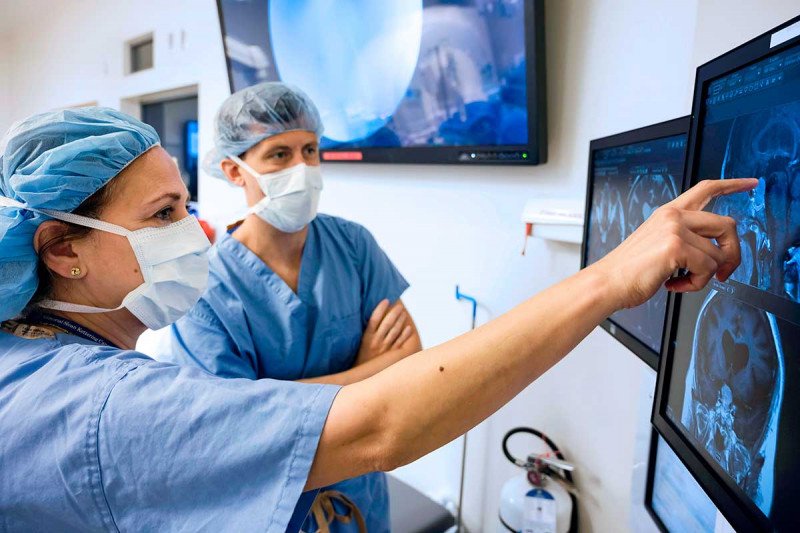Imagine being in the shoes of a patient diagnosed with Roswell spinal stenosis. The fear, the confusion, and hope–all rolled into one. It’s a whirlwind, isn’t it? This is where two seemingly separate worlds—neurology and oncology—intersect, forming a unique horizon called Neuro-Oncology. I’m taking you on a journey today, a journey filled with hope and courage. Let’s dive into the complex and fascinating world of Neuro-Oncology, where we unravel the deep connections between your brain, your spine, and cancer. Together, we will understand the intricacies and wonders of this intricate field.
Understanding the Intersection
Imagine a bustling city intersection. Neurology is one road. Oncology is another. They meet at a point: Neuro-Oncology. This is the study of cancers that occur in the nervous system, with brain and spinal tumors being the most common.
The Role of a Neuro-Oncologist
Think of a Neuro-Oncologist as a tour guide navigating this intersection. They guide patients through treatment. They offer hope. They blend the knowledge of neurology and oncology to deliver targeted care. Their goal? To improve the quality of life for patients like the ones with spinal stenosis.
The Journey of Treatment
The treatment journey is akin to a marathon, not a sprint. There’s consultation, diagnosis, treatment planning, and follow-up. The Neuro-Oncologist is there, every step of the way. They endeavor to ensure the patient feels understood, supported, and comfortable.
Neurosurgery and Oncology: Building Bridges
Remember the bustling intersection? Now, imagine bridges being built. These are the treatment methods. They range from surgery, radiation therapy, and chemotherapy, to a combination of these. The choice of treatment is personalized, designed for the patient’s unique situation.
The Hope in Neuro-Oncology
Despite the fear and confusion, there’s hope in Neuro-Oncology. There’s continual research. New treatment methods are developed. Medical breakthroughs happen. This gives patients a fighting chance. It gives them hope. It assures them they’re not alone in their journey.
Conclusion
Being diagnosed with a disease like spinal stenosis might be overwhelming. But with the intersection of neurosurgery and oncology, patients are never alone. They have Neuro-Oncologists guiding them, and medical advancements supporting them. Above all, they have hope and in the fight against disease, hope is the most potent weapon of all.





